How to Quiet a Generator? 9 Tips To Quiet A Noisy Generator
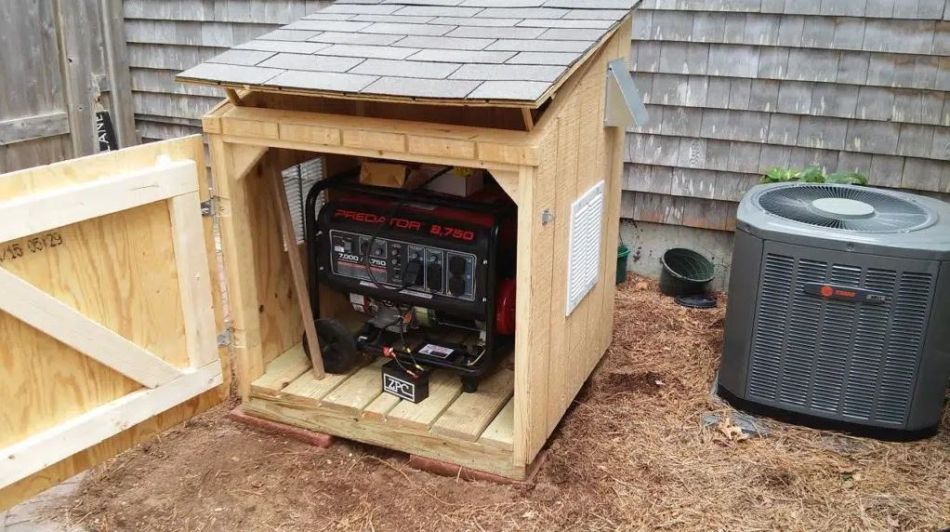
No matter how much generators make life easier for campers and those who use them in everyday life, it cannot be denied that they are very noisy devices. The sound of a generator is usually loud and not pleasing to our ears. Therefore, in this article, we’ll discuss how to minimize the loud sound of the generator. So, let’s start!
How to Quiet a Generator? The best way to quiet a generator is to install a muffler or add a plywood panel. This will reduce its noise by at least 10 dB. Other methods to quiet a generator are placing it on grass or sand, using anti-vibration pads, or using an extension cord to move the generator away from the campsite.
Generators can be used everywhere, and thats why they are popular. In the next lines, we bring you an overview of effective methods that can help reduce the generator’s sound to acceptable limits that will not disturb you. These are simple solutions for which you won’t spend much money.
Table of Contents
Purchase a Generator That Fits Your Needs
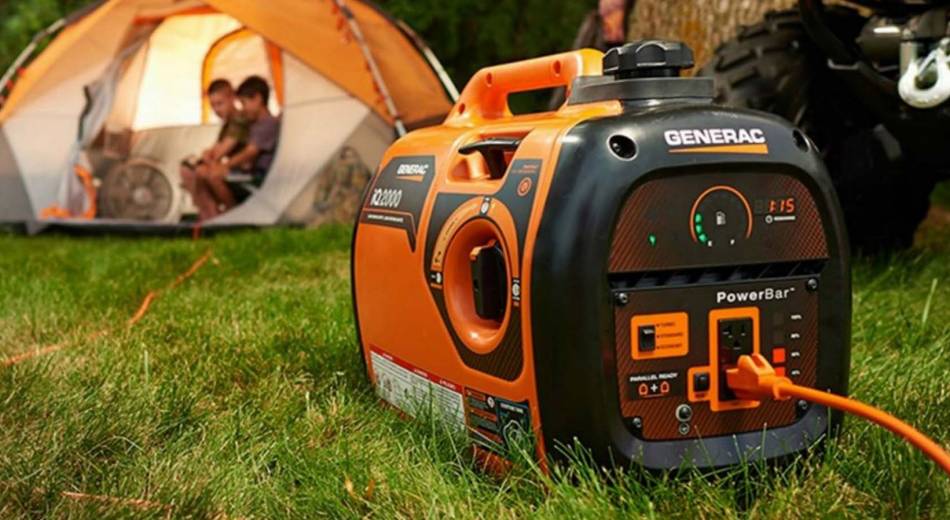
The most powerful one is not always an advantage when buying a generator. You need to know how much electricity you need and choose the device accordingly.
If a less powerful generator will serve you well, there is no need to buy an expensive device with a high-power motor that makes a lot of noise during operation. If you need a generator to power large household appliances such as a refrigerator and washer, the device that suits you must have between 2 and 5 kW output.
If you have a slightly larger budget available, it doesn’t have to be like that. There are generator models that are not very loud. If you buy a generator only to charge your mobile phone or laptop while camping, a generator with an output between 300 and 500 watts is sufficient. Such a device will not produce much noise and will do just fine for your needs.
If you are looking to buy a generator, be sure to read: 10 Best Generators for Travel Trailers in 2022.
9 Ways How To Make a Generator Quiet
Research has shown that human hearing can be permanently damaged if long-term noise exposure exceeds 85 decibels.
Depending on their power, generators produce noise between 50 and 100 decibels. That’s why, when buying a generator, pay close attention to the labels related to the noise level. Learn more about decibels by clicking HERE.
However, since even a generator with a nominal output of 50 dB can be a hassle, in the overview below, find the top 9 tips that can help you reduce the noise level the generator produces.
1. Put Generator Inside Enclosure Box
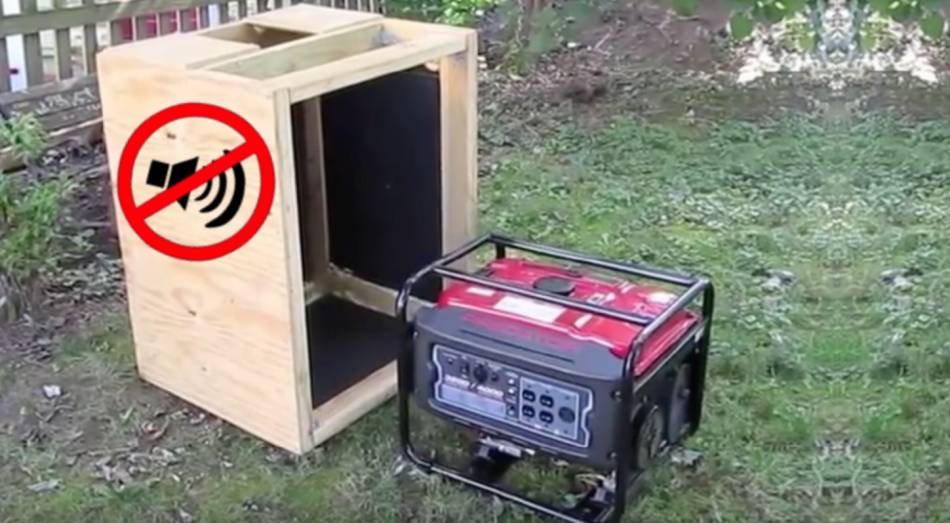
When you are trying to find a solution to reduce the noise produced by the generator that is placed next to your living space or work environment, then it is a good idea to place an enclosure box around the generator. You can make such a box yourself, and here’s how:
Measure the generator’s size, or search for the exact dimensions in the manual that came with the generator. Make a draft of the box on which you should add 1 to 1.5 feet of extra space. Buy panels that are made of plywood or acoustic foam.
The next step is to assemble the box. Connect the sides with the help of E6000 or gorilla glue, and additionally strengthen the edges with the help of PVA wood glue. Finally, be sure to check whether the seams are well sealed.
Note! The generator in the enclosure box must have a ventilation opening! Be sure to embed it in one of the box sides.
2. Place the Generator on Grass or Sand
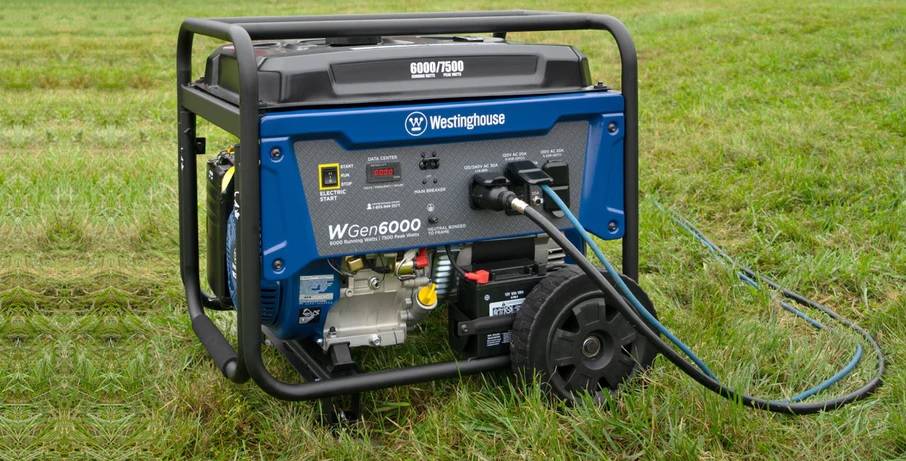
When you place your generator in the camp park, choose a location with a soft surface. The grass is always a better choice than concrete!
However, the best option is if you have sand available at the camp park or if you can bring a small amount of sand with you. When you place 1.25″ of sand on a soft surface like grass and then on the top generator, you can reduce the noise level by as much as 10 dB!
3. Cover Generator With Anti-Vibration Pads
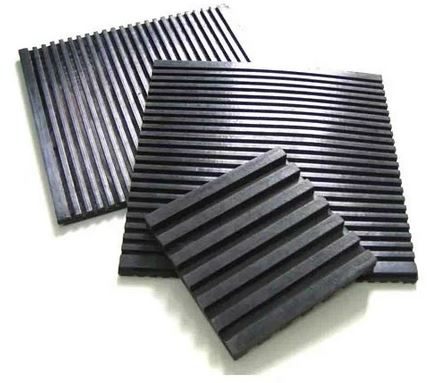
If you cannot place the generator on a soft surface, you can use anti-vibration pads made of foam, cork, or rubber to dampen the sound. They are designed to reduce the noise created by the vibration of an electrical device in contact with a hard surface.
Anti-vibration pads are easy to get, and they are very affordable. They are usually sold in packages containing four pieces 7/9” thick. If you have already set out on your trip and cannot get this equipment, it’s good to know that instead of an anti-vibration pad, an ordinary, thicker, neoprene rubber mat can also help you. If the one you have available is too thin, simply fold it.
4. Reposition the Exhaust Pipes On Your Generator
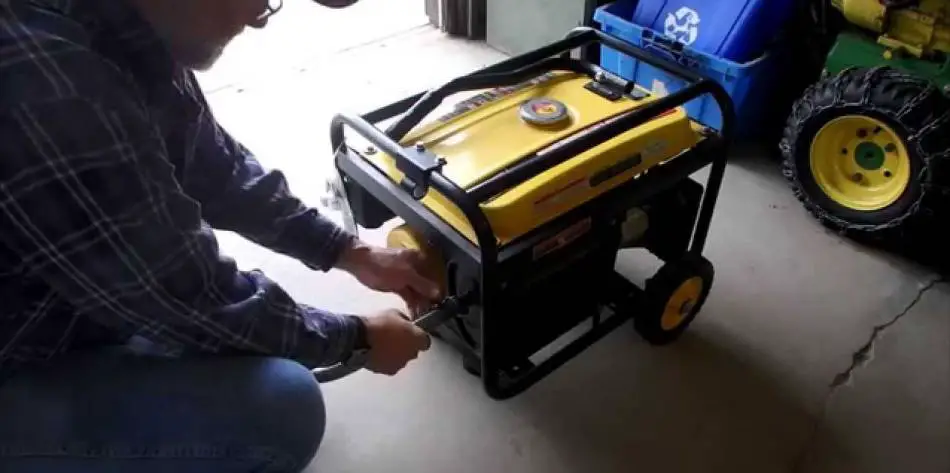
If you pay a little more attention to the generator, you will notice that the noise generated by the device is louder because of the exhaust pipes’ vibration.
That’s why it is an excellent trick to position a generator in a camp park, so the exhaust pipes face the opposite side of your motorhome or tent. Some generator models have the option of moving the exhaust pipes. Check if this is possible with your model.
5. Use Plywood Panels To Reduce Sound
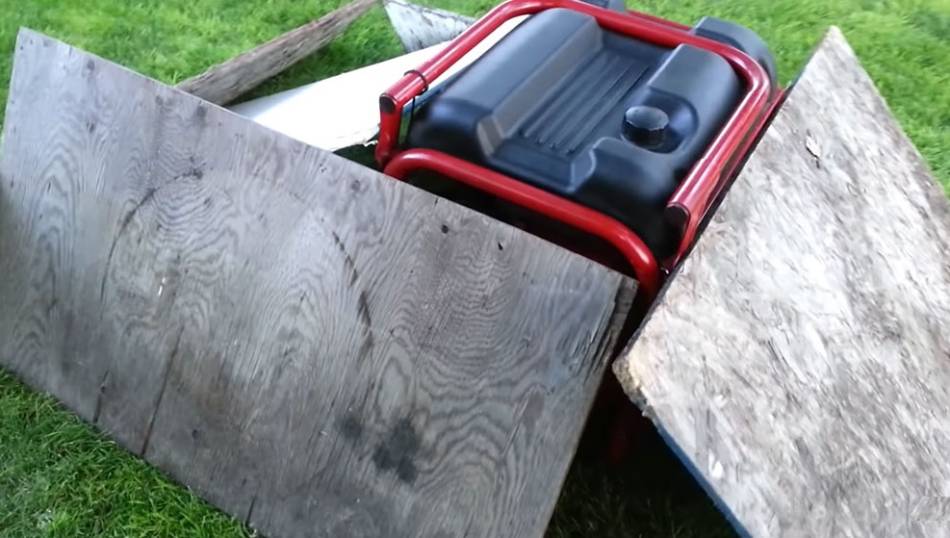
Plywood is a very good noise insulator. However, if you do not want to make a plywood enclosure box, just use plywood panels to silence the generator’s noise by simply surrounding the generator with it. Plywood panels are a great solution because you can take them with you on a trip, unlike an enclosure box.
Although you will think they cannot drastically turn down the sound, you would be wrong. By using them, you can reduce the noise level by as much as 10 dB. Just be careful if you put plywood panels over the top of the generator.
When placing panels, ensure that there is enough space for ventilation and that the panels are not placed too close to the exhaust. Not convinced that this way you can significantly reduce the noise produced by the generator? Watch this video and see for yourself that it is possible!
6. Use Extension Cord To Move The Generator Further
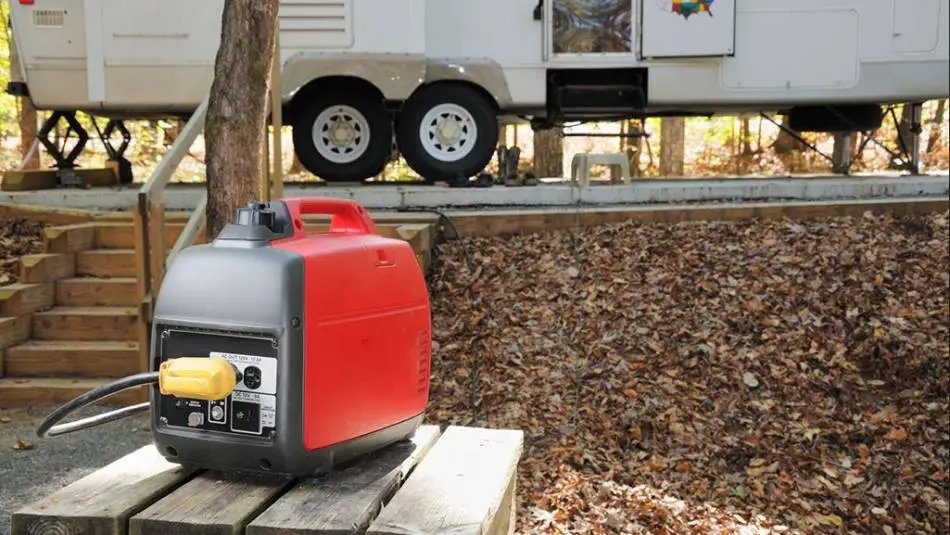
One trick you can use is to place the generator far away from your campsite. The minimum ideal distance is 20 feet from the place you are camping.
Of course, it’s great to move the generator further away. However, as you do not always know when you arrive at the camp park where you will be able to place the generator, be sure to have an extension cord.
When setting up the generator, you must know that it is not polite to place a generator next to someone else’s tent. Also, if you prefer to camp in the wild, always place the generator to a safe place so as not to cause a fire.
7. Choose a Generator For Your Needs
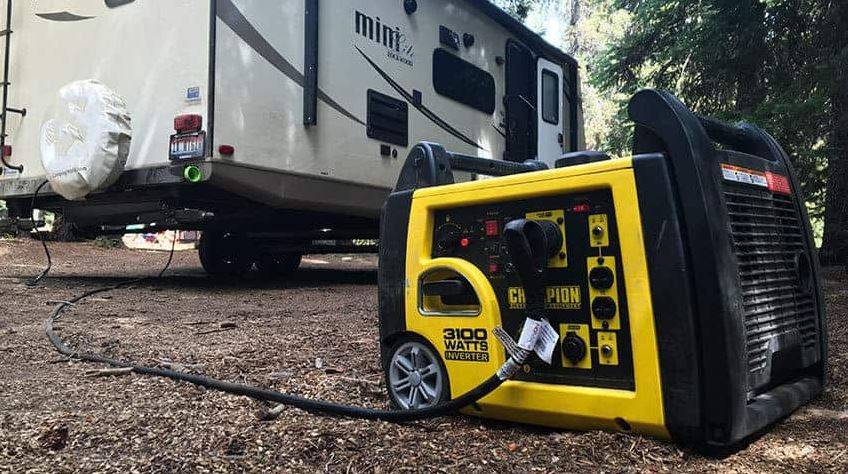
We have already mentioned that a larger and more powerful generator is not always the best option. The more energy the generator has, the more noise it produces.
That is why you must know your needs for generating electricity from the generator. No need to pay a lot of money for a generator with more than 5,000 watts if an output of 2,000 watts is enough for your camping needs.
If you need a powerful generator with a watt output of 7,000 or more, you will surely end up with a loud device. But if you can shell out more money for a model with a muffling feature, you can count on the noise not being so terrible.
8. Use Water in a Bucket
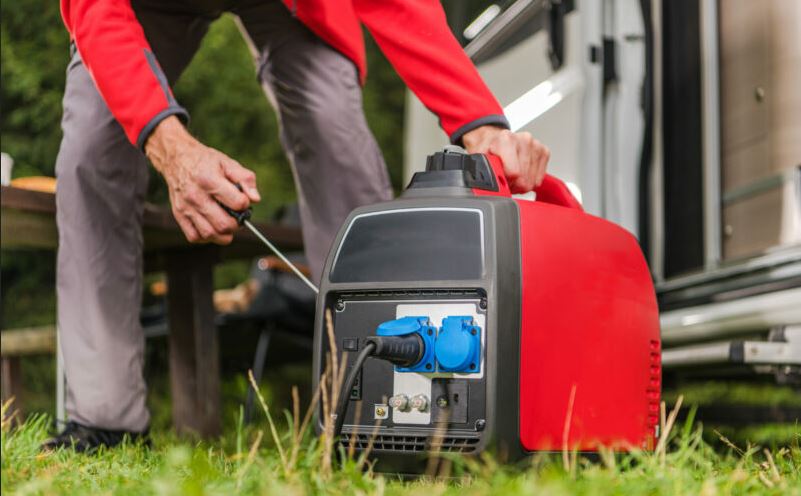
You can quiet down the generator effectively with just one bucket full of water! Water is an excellent noise insulator, and it is available in every camp park. When using this method, you only need a standard rubber hose and a few clamps in addition to water and a bucket. Here’s how to do it:
Fill the water bucket with 5 gallons of water. Place one end of the hose in the exhaust pipe, and immerse the other end in water. And you’re done! But you have to be very careful to position the hose so that the water from the bucket cannot end up in the generator motor and that the generator is higher than the bucket.
Although this method may sound scary and like a potential disaster, it really isn’t. I have tried it several times and can say it is very effective. Nothing bad can happen if this simple system is set up carefully.
9. Add a Car Muffler To a Generator
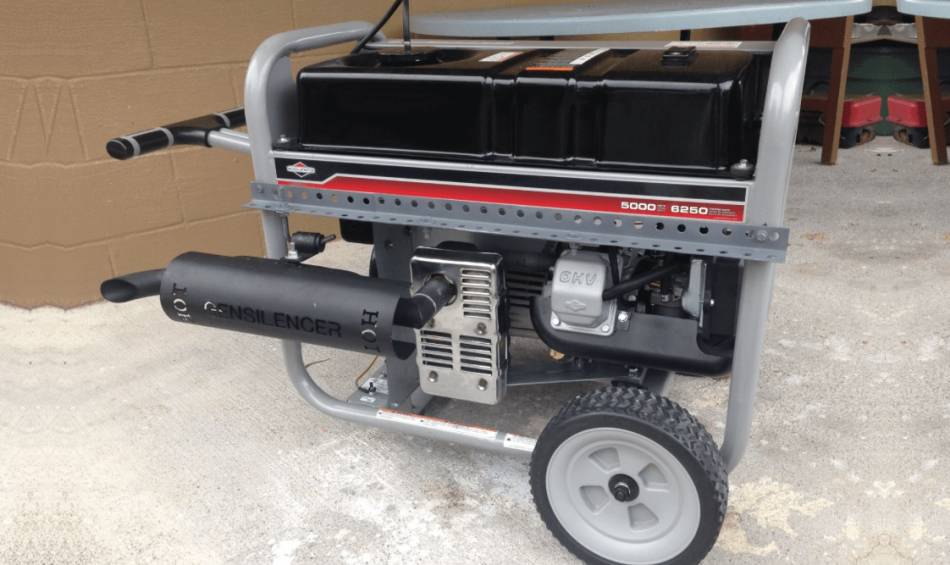
We have already mentioned that a good part of the noise produced by the generator is due to vibrations from the exhaust pipes. If the tips from this list aren’t good enough, just get a muffler for exhaust pipes. It will help you reduce the noise by at least 10 dB.
However, you must know that mufflers for generators are usually hard to find, so you will have a hard time finding one that suits you on store shelves or online. Therefore, if you are inclined to DIY projects, you can try to install a custom muffler of another device on the generator.
To see how this work, be sure to watch this YouTube video:
Related article: 3 Best RV Battery for Boondocking & Dry Camping
Final Thoughts
Using a generator is a necessity that cannot be avoided in some situations, and in others, such as camping, it is a source of many comforts that we find difficult to give up. That’s why people buy and use generators regardless of how noisy they are. Fortunately, there are many ways to silence the generator, and we have covered most of them in this article. Give them a try if your generator is too noisy, and let us know which works best for you.

Thank you very much for sharing, I learned a lot from your article. Very cool. Thanks. nimabi
Your point of view caught my eye and was very interesting. Thanks. I have a question for you. https://www.binance.info/sl/join?ref=IJFGOAID
Your point of view caught my eye and was very interesting. Thanks. I have a question for you.
Thank you for your sharing. I am worried that I lack creative ideas. It is your article that makes me full of hope. Thank you. But, I have a question, can you help me?
Your article helped me a lot, is there any more related content? Thanks!